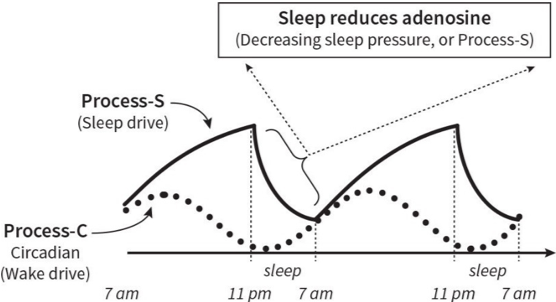The Silent Crisis of Sleeplessness: Understanding the Epidemic
Written on
The Consequences of Inadequate Sleep
In my college days, I took pride in managing with just five to six hours of sleep nightly. Juggling late-night study sessions and early mornings to tackle lab reports became habitual. However, after delving into Matthew Walker’s "Why We Sleep," my perception of sleep as a luxury began to shift. The reality is that inadequate sleep hampers not only creativity and productivity but also wreaks havoc on various bodily systems, including cardiovascular, immune, reproductive, metabolic, and cognitive functions. Ultimately, a lack of sleep is a surefire way to reduce both the quality and duration of life.
Over the last century, we have strayed from the natural sleep patterns that evolution shaped over millions of years. The rise of industrialization forced us to wake prematurely due to factory signals and, later, alarm clocks. Additionally, the invention of electric lighting has extended our waking hours, disrupting the natural cues that signal the body to rest. Consequently, we find ourselves in a quiet epidemic of sleeplessness, which adversely affects our health, longevity, safety, productivity, and educational outcomes.
The Biological Basis of Sleep
Sleep is influenced by numerous biological and chemical mechanisms, chiefly the secretion of melatonin. The primary regulators of sleep and wakefulness are circadian rhythms and sleep pressure, the latter being the accumulation of adenosine in the brain during wakefulness. While we sleep, adenosine levels drop quickly, akin to the discharge of a capacitor. The greater the disparity between elevated adenosine levels and lower circadian rhythms, the stronger the compulsion to sleep.

Understanding Sleep Stages
Sleep can be categorized into two main types: rapid-eye-movement (REM) sleep and non-REM (NREM) sleep. While NREM sleep is crucial for consolidating memories, REM sleep is essential for weaving newly acquired memories into our existing mental framework and enhancing emotional, social, and creative skills. During NREM sleep, the brain appears to replay the day’s experiences in a fast-paced, autobiographical manner. As Walker explains:
"Think of wakefulness as the reception of experiences, NREM sleep as the reflection and storage of those experiences, and REM sleep as the integration of those memories, helping to build a more accurate understanding of the world and enhancing problem-solving abilities."
Both NREM and REM sleep contribute to a broad spectrum of restorative functions, though these are beyond the current discussion.
The Importance of Sleep
Walker underscores the critical role of sleep and the severe consequences of sleep deprivation. Here’s a brief overview of some startling findings:
- Cognitive performance after 19 hours of wakefulness matches that of individuals with a blood alcohol concentration of 0.08%.
- Drowsy driving accidents surpass those caused by alcohol and drugs combined.
- The transition into daylight saving time results in an increase in heart attacks the next day, whereas gaining an hour of sleep in the fall leads to a decrease.
- Lack of sleep during dieting results in a loss of 70% lean body mass instead of fat.
- Early school start times for teenagers contribute to significant underperformance due to a lack of REM sleep.
- Sleep deprivation leads to increased caloric intake, often with poorer dietary choices.
- Just one night of limited sleep (four hours) can reduce natural killer cells in the immune system by 70%.
- Employees who are well-rested demonstrate far superior performance than those who are sleep-deprived. Contrary to popular belief, overworking under-slept employees does not yield greater value.
- Sleeping pills do not replicate natural sleep; they induce a mild state of anesthesia without the restorative effects.
- Surgeons who sleep only six hours prior to operations face a 170% higher risk of making serious errors compared to those who have had adequate rest.
Walker advocates for a healthy sleep duration of seven to nine hours each night, which he describes as the most cost-effective medicine available. In his words:
“It’s time for us to reclaim our right to a full night’s sleep without shame or the stigma of laziness. In doing so, we reconnect with an essential source of vitality and wellness.”
For practical tips on achieving better sleep, Walker directs readers to a helpful website that offers straightforward advice on managing factors like light and temperature. Additionally, he appeared on the Joe Rogan Podcast in 2018 for further discussions on sleep.
The Sleep Deprivation Epidemic with Matthew Walker - YouTube
In this enlightening video, Matthew Walker discusses the widespread issue of sleep deprivation, its causes, and its impact on health and well-being.
Insomnia – The Health Risks of Sleep Loss - YouTube
This video explores the various health risks associated with insomnia and chronic sleep loss, emphasizing the importance of adequate sleep for overall health.